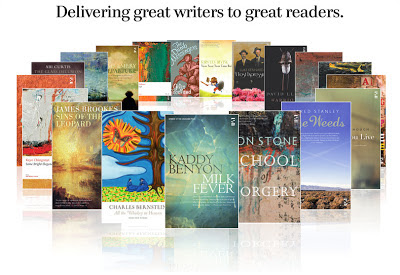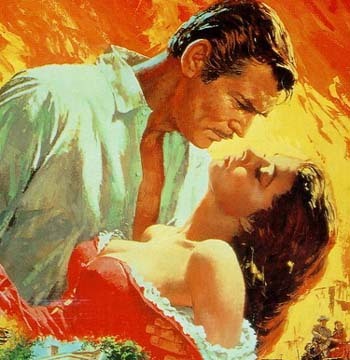Is poetry a subculture? It might be worth asking ourselves
that question. I’m not a sociology student and I’ve never been part of a
subculture myself, so my point of view can only be partial. (But then isn’t a
monocular focus only on one’s own field itself characteristic of subcultures?
Isn’t my failure to represent perspectives on poetry that originate outside of
poetry a fact symptomatic of subcultural hermeticism, and evidence that I
belong to this subculture – for the good and for the bad?).
A subculture is more than just ‘a group of people with
common interests’, like a bridge club or bungee jumping. It has codes, beliefs,
clans, heroes. For me, the term is one I most readily associate to music. The
two words that immediately spring to my mind when I hear it are ‘punk’ and
‘goth’. There are others, of course. There are also many subcultures that are
not really defined by music, though they may be related to it in some ways or
another (hippies, to name a big one). And there’s supposed to be a whole world
of sexual subcultures, especially in the gay community, but I’m even more
ignorant of those than I am of the musical ones.
Here’s the thing though – there is a substantial difference
between the way these groups are perceived and represented in (popular?)
culture and the way that poetry and poets are (or are supposed to be). Not to
put too fine a point on it, all of the above are understood as peripheral to
our culture, as living in the margins, as colourful but – at least when taken
individually – not essential to the workings of society. They allow for the
kind of vocabulary that everyone else can use to crack a mild joke: Cartman’s celebrated
phrase, ‘it’s all a bunch of tree-huggin’ hippie crap’, is funny because it’s
so easy to relate to it (no offence, hippies).
But poetry is supposed to be central. It’s meant to be one
of the barometers of a culture’s vitality; poets encapsulate and represent an
age for the generations later to come; they define and shape the identity of
nations. Surely something’s a bit off when you put them in the same category as
your neighbour and the four nerd friends of his who get together every Saturday
night (!) to play fantasy role and/or board games about dragons fighting
unicorns.
So what exactly is a subculture? Ken Gelder identified six key
ways to recognise them:
1. Their often negative relations to work
(as 'idle', 'parasitic', at play or at leisure, etc.);
2. Their negative or ambivalent relation
to class (since subcultures are not 'class-conscious' and don't conform to
traditional class definitions);
3. Their association with territory (the
'street', the 'hood', the club, etc.), rather than property;
4. Their movement out of the home and into
non-domestic forms of belonging (i.e. social groups other than the family);
5. Their stylistic ties to excess and
exaggeration (with some exceptions);
6. Their refusal of the banalities of
ordinary life and massification.
(In passing, I don’t have a clue who this Gelder guy is – I’m
only using him because his was one of the clearest of the quotations I found onWikipedia – but what he says seems to make sense, so until a real sociology student comes
along, let’s roll with it.)
I’d say that one, two and six are pretty obviously true of
poetry. Three is plainly off – though it’s true that poets do not associate
with property, I wouldn’t say they do so with territory either. Four and five
are a bit more debatable, but I’d say poetry flicks the switch for both. Poets
do, on the whole, display a movement out of the home and into non-domestic
forms of belonging, notably when they first go to university and start forming
ties with other aspiring poets; it’s at that point that they first come in
touch with the community, one which does not speak to / with their family or
their other social circles. In brief, the literary community does something
that is typical of subcultures – it assists its member(s) in the formation of a
new, non-domestic identity. This process usually starts in the academic arena, and
it works so well that many poets never even leave it – witness the number of
artists who work in universities. But it is certainly not limited to that
territory (hence, I don’t think #3 holds).
Number five, the stylistic ties to excess and exaggeration
(note on the run that Gelder allows for ‘exceptions’), revolves around the word
‘stylistic’, and brings us to one of the primary differences between the poetic
subculture and the others I mentioned (the music ones in particular). The
latter appear to be much more interested in external appearance and clothing;
their codes are embedded in the way they dress. Superficially, this doesn’t
seem to be the case with poetry – I say superficially because I’m of the
opinion that there is such a thing as a dress-code common to poets, too, it’s
just much harder to pin down. Since the leading principle is that of rule
number six (see above), clothes are used to reject mainstream codes; they are
therefore used – not necessarily in a conscious manner – to go against
expectations. The problem is that while a fan of goth music has the common and
relatively transparent codes of mainstream music that s / he can simply turn on
their head to express his / her rejection, poets each respond to their own
societal codes. So it is perfectly possible – and consistent – for a poet to
‘go against expectations’ by dressing in seemingly shabby clothes while another
does the same by wearing a gala suit. This does not mean that their identity as
poets may not correspond to the same societal construction, and therefore not share
a drive in terms of social expression – but I digress.
 |
| Ginsberg's outrageous head-wear |
So yes – if Gelder’s little list is anything to go by,
poetry does have a lot in common with subcultures. In sociological terms, it
operates in much the same way. It also has some traits which make it differ.
One example is the effort, within the poetry subculture, to expand its borders
and get poetry to more people and wider audiences. This contrasts with the
attitude taken by more traditional subcultures, which are rather content with
the marginal state in which they subsist (though they too can be flustered and
frustrated when the media misrepresent them). It might be the result of
poetry’s inability to recognise itself as a subculture, insisting instead that
it is more ‘central’ to society. An identity crisis, if you will, but on a
grand scale. Or it might be one of the individual characteristics of this
subculture, the same way that a drive towards political anarchy is (I think)
one of the drives of punk.
And here is my point. Poetry is central to society, just not this
poetry. Not the community. Not the subculture. Attempting to expand poetry in
these terms means attempting to get more people be like us – while a more
effective strategy would be that of having your poetry speak to those who are not like us. This is not as obvious as
it sounds – there are some people out there who genuinely do not deserve being
spoken to. Furthermore, it might involve letting go of just those values that
we hold so dear about our community, like our point number six, the ‘refusal of
the banalities of ordinary life and massification’. Most people don’t refuse
these things, and are not interested in investigating the possibility;
communicating with them, therefore, might involve relinquishing this refusal.
Is this something you are ready to do? And if poetry really involves
non-conformism, then here’s the thing – could it be that the best way for you
to write it is to do what others don’t do – and stay the hell away from this
community, and not even read this article in the first place?




















